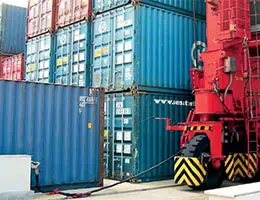 The Latin word demerĭtus came to Spanish as demerit . This is what the absence or lack of merit or value is called. A demerit is also a condition or an act through which one is devalued .
The Latin word demerĭtus came to Spanish as demerit . This is what the absence or lack of merit or value is called. A demerit is also a condition or an act through which one is devalued .
For example: "Convening a meeting of specialists to request assistance in certain situations is not a demerit for a ruler" , "We have to reduce costs without detracting from quality " , "It is a demerit to reach the goal in this way" .
Suppose a writer is hired to give a lecture at a cultural center. When the man begins his speech, he does not know what to say, since he did not prepare the talk. In this way he begins to improvise, although he often gets stuck and even remains silent for long periods of time until he can think of what to communicate. The writer's presentation is defined as a demerit by the public and those who hired him.
Take the case, on the other hand, of a professional First Division soccer team that faces a group of amateurs. Due to the reality of both teams, a win in favor of the professionals was expected. However, the match ends 1-0 in favor of said squad. According to journalists, the result is a demerit for the First Division team, beyond the victory.
These two examples show us that demerit can occur as a consequence of one or more decisions that lead us to not present ourselves in the appropriate way to the world, that do not allow us to show the best of ourselves, the expectations that our reputation arouses in our environment, but, on the contrary, they push us to tarnish our image, to "devalue" it. Although the term demerit is not used in everyday speech, this idea can be represented by others such as "disappointment" or "disappointment."
In the field of law and insurance , finally, a demerit is the loss of value that an asset registers as a result of an accident or due to its daily or habitual use.
 Let's take for example the laws of Colombia to explain another concept in which this term appears: in article 404 of Decree 2685 of 1999 , the expression "absolute demerit" was provided for, to refer to merchandise that is in a state of deterioration. truly serious, that are going through a process of decomposition or that have been subjected to total damage.
Let's take for example the laws of Colombia to explain another concept in which this term appears: in article 404 of Decree 2685 of 1999 , the expression "absolute demerit" was provided for, to refer to merchandise that is in a state of deterioration. truly serious, that are going through a process of decomposition or that have been subjected to total damage.
Saying that a good has suffered absolute demerit is the same as talking about its lack of value, which can be partial or total and this can take place due to the passage of time or different issues linked to its nature or condition . as long as they are not removed from a free zone . All this is mentioned by the National Tax and Customs Directorate .
In addition to the possibilities just mentioned, the destruction of goods can also take place for other reasons, such as obsolescence , a concept that is defined as the act of ceasing to use an equipment, technology or machine, not because of that do not work properly but because they do not reach the level of performance that the most modern versions that have been introduced on the market do offer.
The demerit of goods , as can be seen, can occur for different reasons, ranging from material damage to convenience issues, which put them below other more modern ones. It is important to understand that it can also lose value if certain fundamental elements for its structure are lost, such as pieces that are necessary for its operation.
